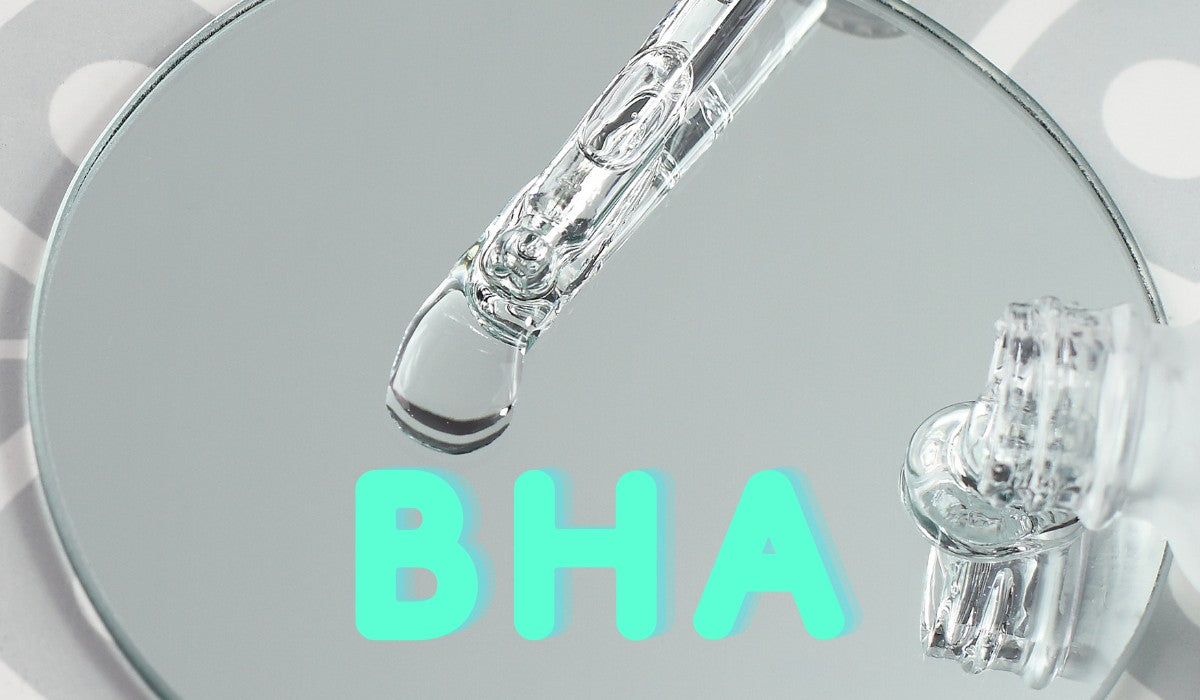7 min read
What is bha? should people with inflammatory acne use bha?
What is BHA? Dermalogica will answer you the question: Should you use BHA for inflammatory acne? How to use BHA effectively at home without worrying about irritation.

BHA is an active ingredient that brings many benefits to the skin. Therefore, BHA is a common ingredient in products that support acne treatment and skin care. In this article, let's find out with Dermalogica what is BHA? And let's answer the question: Should people with inflammatory acne use BHA or not?
What is BHA?
Before answering the question: Should people with inflammatory acne use BHA? We need to find out what BHA is?

Beta Hydroxy Acid or commonly abbreviated as BHA - this is a group of oil-based acids. BHA is prepared and extracted from willow bark. The most common types of BHA include:
- Axit β-Hydroxybutyric
- Axit β-hydroxy methyl-methylbutyric
- Carnitine
- Salicylic Acid
Salicylic Acid is the most popular BHA in cosmeceutical products. Therefore, when mentioning BHA we always default to Salicylic Acid.
How does BHA work?
BHA is a plant-based acid. Therefore, when used on the skin, BHA will have an abrasive effect on the skin. Thanks to that, BHA causes peeling on the skin's surface and promotes the natural biological change process in the skin. Thanks to this ability, BHA helps remove old, old skin on the surface, effectively improving conditions: dark spots, acne scars, shallow wrinkles, skin pigmentation disorders...
So should I use BHA for inflammatory acne? Let's continue to learn with Dermalogica in the next part!
Should I use BHA for inflammatory acne?

Should acne capsules use BHA? This is one of the questions many readers sent to Dermalogica. In terms of characteristics, BHA is an oil-based acid. Therefore, BHA works very well on the surface of the skin and they can go deep into the roots of the pores to remove excess oil, dead cells and dirt. Besides, thanks to the ingredients containing Aspirin, BHA is an ingredient that helps reduce acne inflammation and accelerate the process of removing acne.
Because of the effects it brings to the skin, BHA is an active ingredient that is widely used in products for oily, combination and acne-prone skin such as: makeup remover oil, facial cleanser, toner, moisturizer. …
What types of acne is BHA effective on?
Should people with inflammatory acne use BHA? The answer is definitely: YES. BHA contributes to helping reduce swelling and collect acne. However, when you have inflammatory acne, just using BHA is not enough. You should use additional ingredients that are highly effective in treating inflammatory acne such as: Benzoyl Peroxide, Clindamycin...
BHA will bring the best results with types of acne such as hidden acne and blackheads.
Skin reactions are common when using BHA
When you first start using BHA, you may experience some skin reactions as follows:

#1 Purging
Pimples are the most common case when we start using BHA. Pushing acne is a phenomenon in which more acne appears on the skin when we start using a new product than when we have not used it. In this case, BHA helps push hidden acne deep under the skin to the surface of the skin. . Hidden acne is often difficult to observe and recognize. Therefore, you will be a bit worried about the "congestion" of acne appearing when you start using BHA. However, this phenomenon will gradually decrease after 2-6 weeks. So, don't worry too much when your skin gets acne!
#2 Skin irritation (Break out)
This is a case of irritation due to skin incompatibility with the product. When used on the skin, the product clogs hair follicles, causing acne in a short period of time. In case of irritation, it is easy to confuse it with acne. You can recognize irritation by observing the surface of the skin. When the skin is irritated, red acne spots will appear. They grow in large clusters and cause itching on the skin.
How to use BHA safely
BHA is a strong active ingredient, so to ensure safety when first starting use, you should note the following:
#1 Help your skin get used to the BHA concentration

When you first start using BHA, you should familiarize your skin with a low concentration of about 0.5% and then gradually increase it. Starting the skin with a low concentration of BHA will help the skin gradually adapt and minimize possible skin irritation. At the same time, the appropriate BHA frequency would be 2-3 times/week. In case of dry skin, you can use BHA to dab on skin areas with hidden acne and blackheads instead of using it all over your face.
#2 How to combine BHA with other ingredients
BHA should only be used at night. Retinol, vitamin C, tretinoin... are active ingredients that should not be used with BHA. Instead, you should consider using ingredients that help moisturize and restore skin such as vitamin B3, vitamin E, aloe vera gel...
#3 Use sunscreen daily

Using sunscreen when using BHA is extremely important. BHA will erode the skin and make the skin surface thinner. Therefore, the skin is also easily attacked by ultraviolet rays, causing melasma, freckles, and skin aging. Therefore, using sunscreen with a minimum SPF of 35 is a must when using BHA.
Should people with inflammatory acne use BHA? The answer is: Yes. The effects that BHA brings to the skin are undeniable. However, the possible risks when using BHA incorrectly are something you should consider. Therefore, learn about BHA carefully before using this active ingredient in your daily skin care routine!




